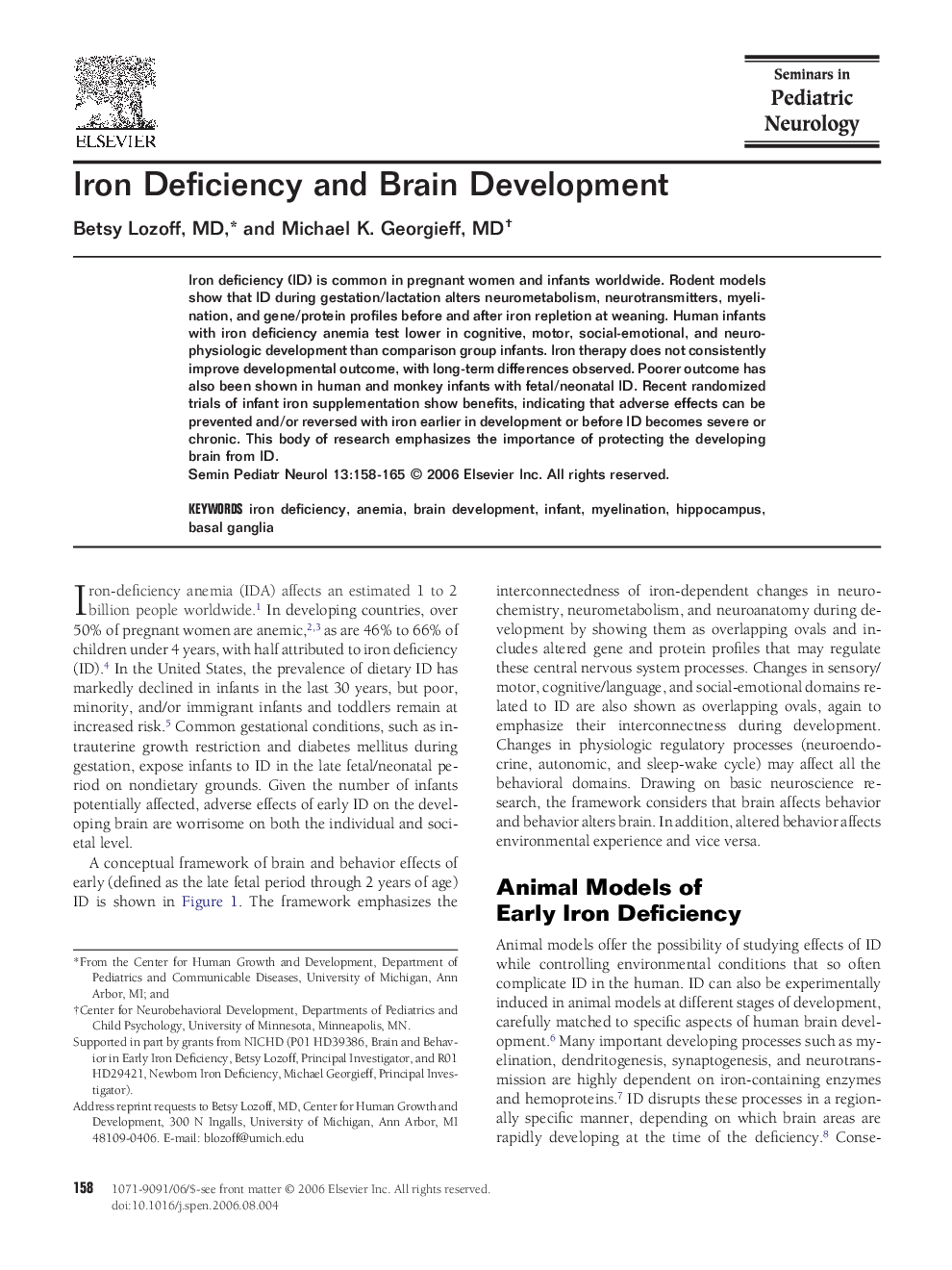| Article ID | Journal | Published Year | Pages | File Type |
|---|---|---|---|---|
| 3091304 | Seminars in Pediatric Neurology | 2006 | 8 Pages |
Iron deficiency (ID) is common in pregnant women and infants worldwide. Rodent models show that ID during gestation/lactation alters neurometabolism, neurotransmitters, myelination, and gene/protein profiles before and after iron repletion at weaning. Human infants with iron deficiency anemia test lower in cognitive, motor, social-emotional, and neurophysiologic development than comparison group infants. Iron therapy does not consistently improve developmental outcome, with long-term differences observed. Poorer outcome has also been shown in human and monkey infants with fetal/neonatal ID. Recent randomized trials of infant iron supplementation show benefits, indicating that adverse effects can be prevented and/or reversed with iron earlier in development or before ID becomes severe or chronic. This body of research emphasizes the importance of protecting the developing brain from ID.
